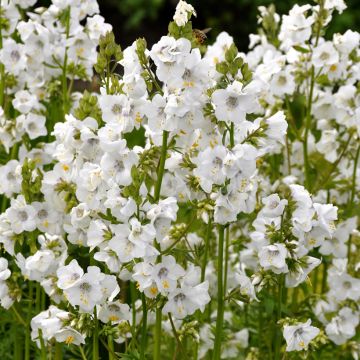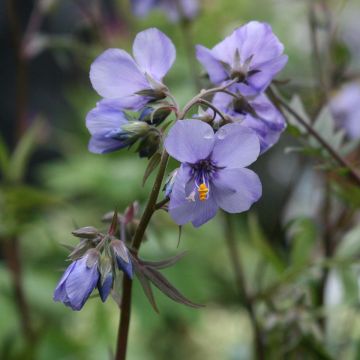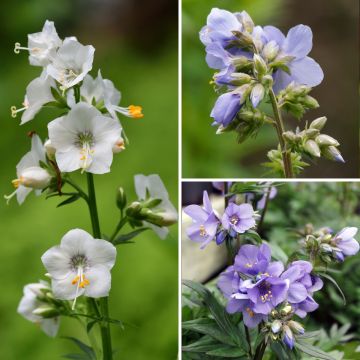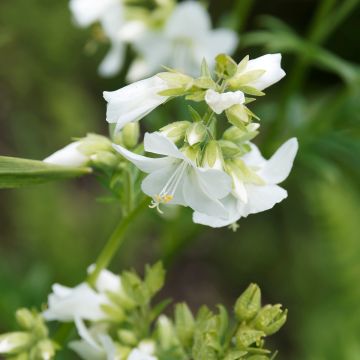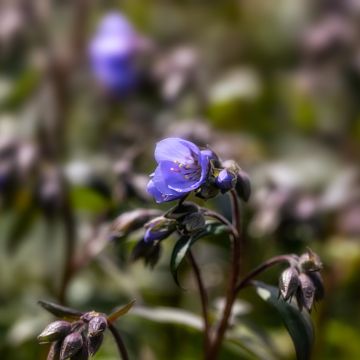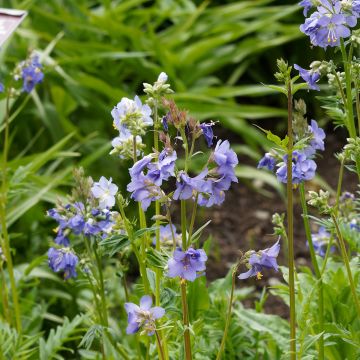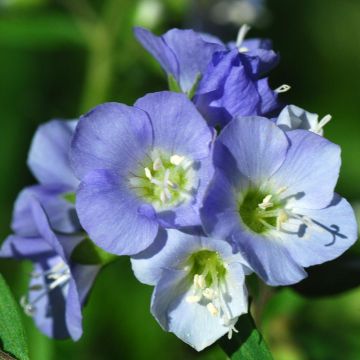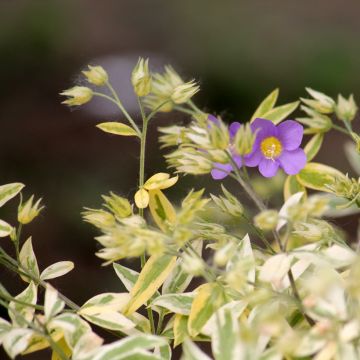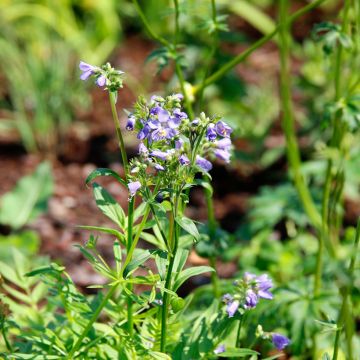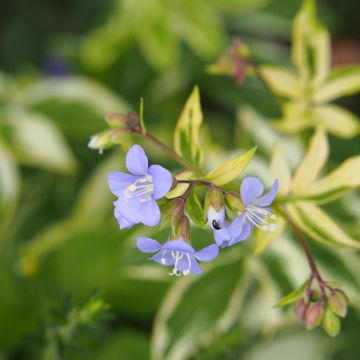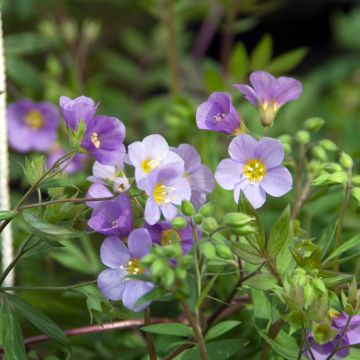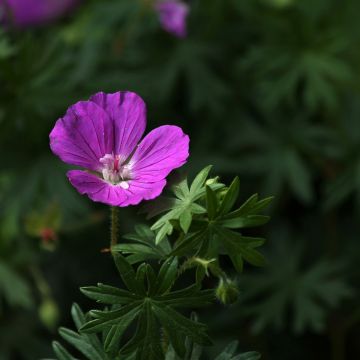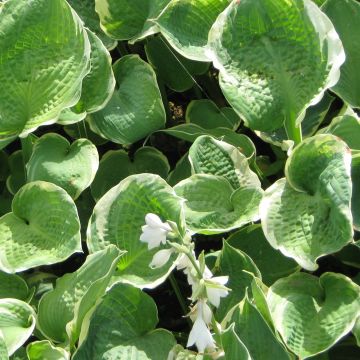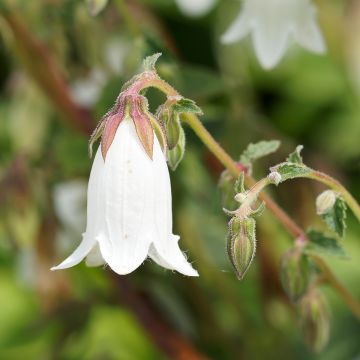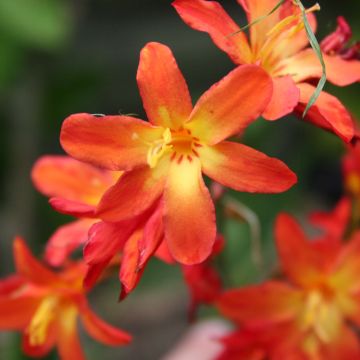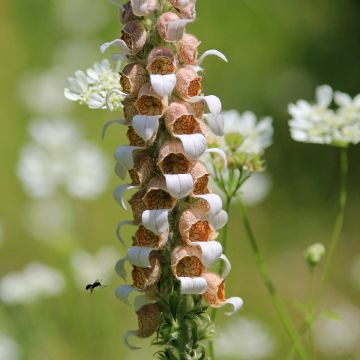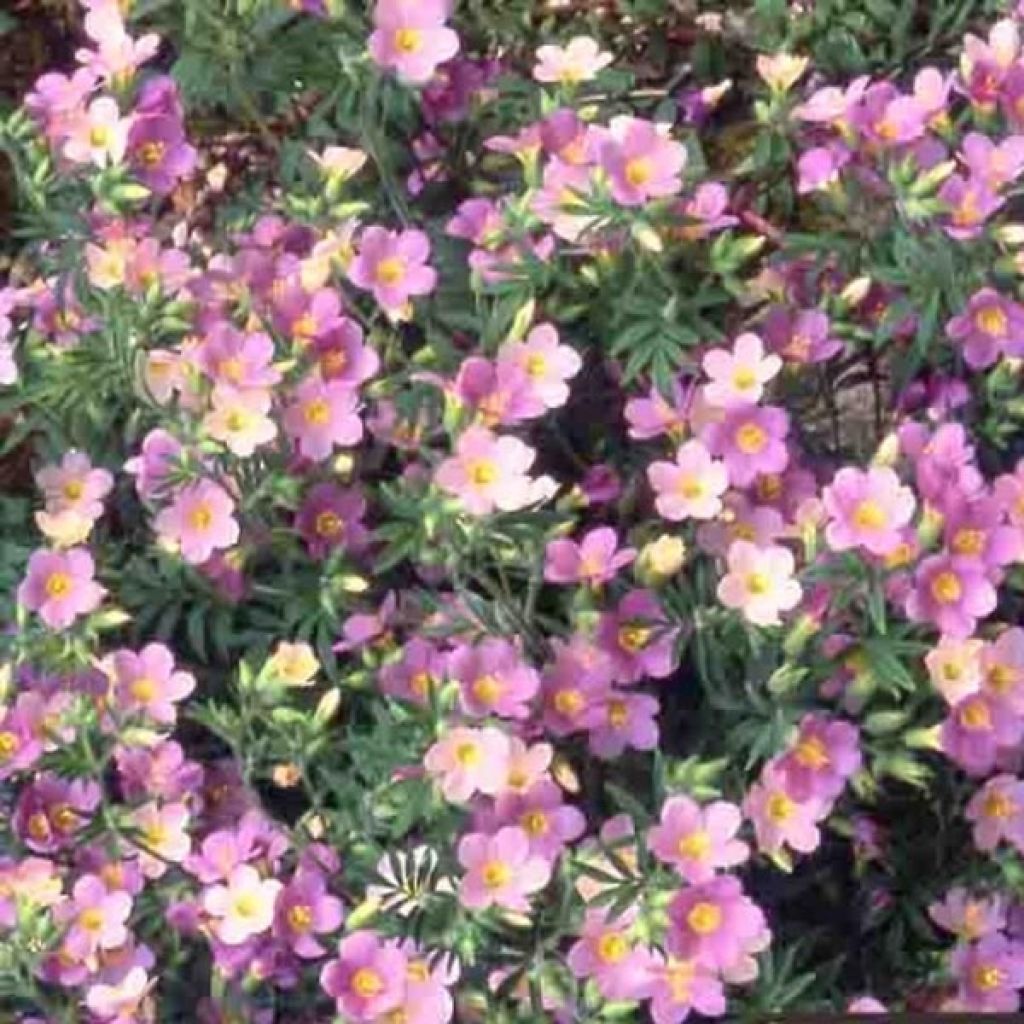

Polemonium carneum Apricot Delight
Polemonium carneum Apricot Delight
Polemonium carneum Apricot Delight
Greek Valerian, Salmon Polemonium, Great Jacob's Ladder, Royal Jacob's Ladder, Royal Polemonium
Why not try an alternative variety in stock?
View all →This plant carries a 12 months recovery warranty
More information
We guarantee the quality of our plants for a full growing cycle, and will replace at our expense any plant that fails to recover under normal climatic and planting conditions.
From €5.90 for pickup delivery and €6.90 for home delivery
Express home delivery from €8.90.

Does this plant fit my garden?
Set up your Plantfit profile →
Description
Polemonium carneum Apricot Delight, also known as Greek Valerian, Salmon Polemonium, Great Jacob's Ladder, Royal Jacob's Ladder and Royal Polemonium, is a very hardy perennial, preferring cool, well-drained and humus-rich soil, appreciated for its fine-textured foliage and abundant flowering with delicate pink flowers shaded with pale apricot at the centre. This lovely plant finds its place in border plantings, in non-burning sunlight.
Polemonium carneum 'Apricot Delight' belongs to the Polemoniaceae family. Its ancestor is a botanical species native to California, particularly Oregon. In the wild, it is found in valleys adjacent to the Cascade Mountain Range as well as along the coast. It grows in full sun or partial shade in rich, moisture-retaining soils. If the soil dries out in summer, the plant goes into dormancy. Capable of adapting to soils acidified by conifer needles, this plant also shows good tolerance to clay soils that dry out in summer. A plant of relatively slow growth, it may take a few years to reach its full potential.
'Apricot Delight' is a horticultural selection with a robust and vigorous rootstock and more colourful flowering. From this rhizomatous rootstock, the plant develops dense rosettes in spring, from which strong, sticky stems rise to a minimum of 40 cm (16 in) above the ground. On the stems, the leaves are composed of about twenty leaflets arranged in an orderly manner, a beautiful bright green. The plant expands over time through its rootstock. The pink flowers, shaded with pale apricot, are abundant from May to July-August if the soil remains moist. The flower stalks bear several clusters of 3 to 6 flowers. Each flower is a corolla 3 cm (1 in) in diameter, fully open, composed of 5 petals fused into a tube at the base. In this 'Apricot Delight' variety, the flowers are pink, tinted with pale apricot towards the centre. As this colour changes to dark mauve-pink over time, the flowering is a tender gradient. It is also very attractive to bees. Greek Valerian can self-seed, but it never becomes invasive. The deciduous foliage dries up in autumn and regrows in spring.
Perfectly hardy, Polemonium 'Apricot Delight' grows in sunny locations if the soil remains slightly moist, or in partial shade. It prefers fresh, well-drained soils rich in humus, but can tolerate some limestone and clay. In the garden, plant it in border plantings, for example alongside bellflowers, perennial geraniums, ground cover roses, perennial salvias, etc.
Report an error about the product description
Polemonium carneum Apricot Delight in pictures
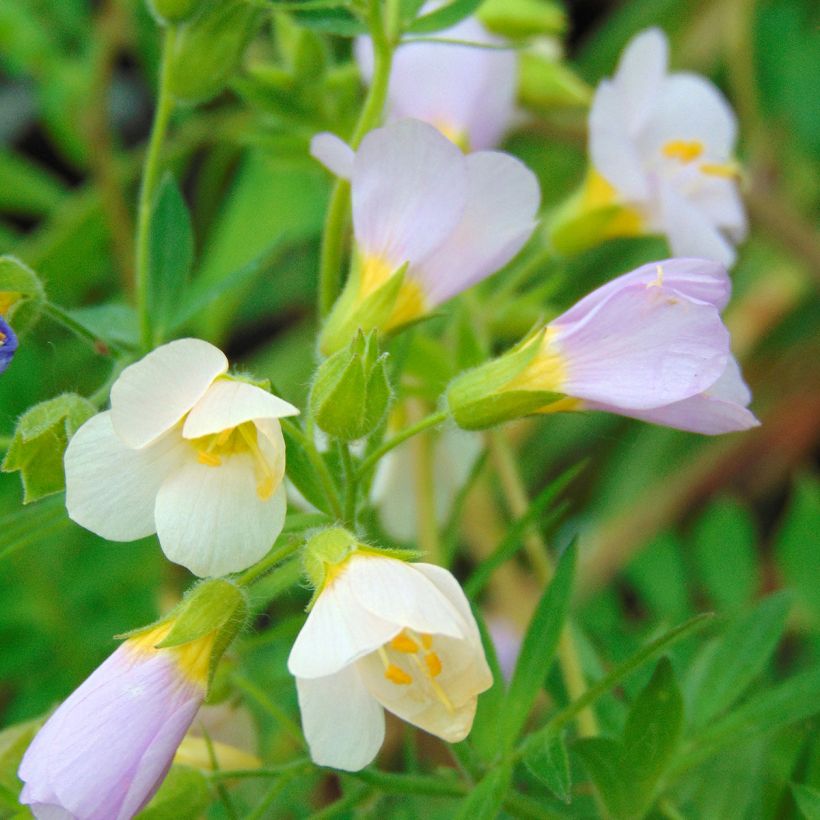

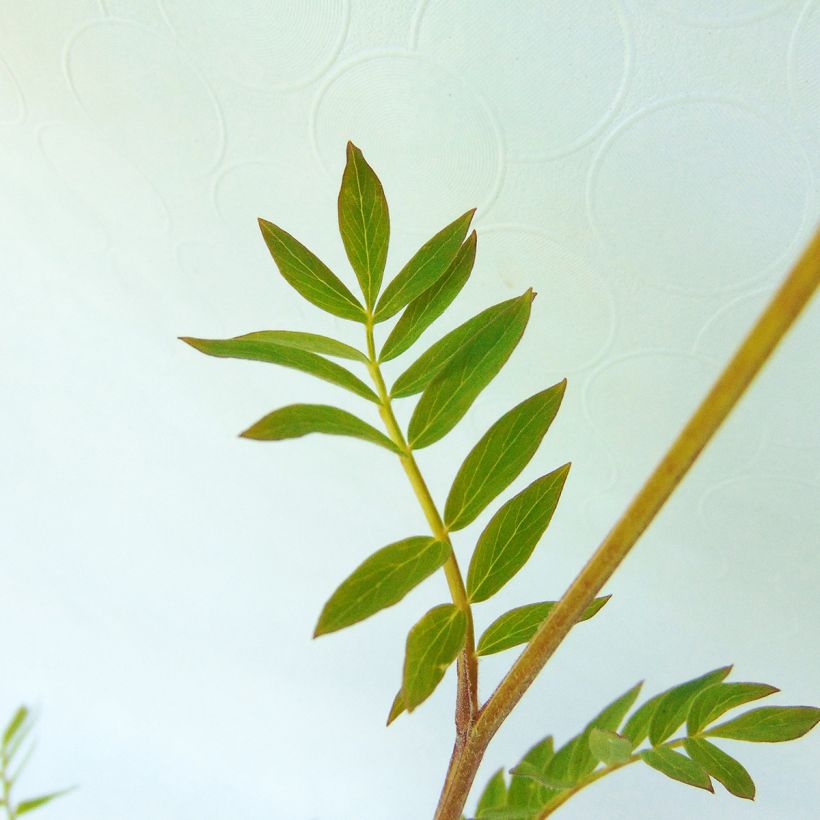

Flowering
Foliage
Plant habit
Botanical data
Polemonium
carneum
Apricot Delight
Polemoniaceae
Greek Valerian, Salmon Polemonium, Great Jacob's Ladder, Royal Jacob's Ladder, Royal Polemonium
North America
Other Polemonium - Jacob's Ladder
Planting and care
Plant Polemonium carneum Apricot Delight in full sun or partial shade, in a moist but well-draining soil. This perennial prefers soil rich in humus that does not dry out too much in summer: a lack of water induces dormancy and reduces flowering. Its lifespan is short, but the plant readily self-seeds and persists for a long time in gardens.
Planting period
Intended location
Care
-
, onOrder confirmed
Reply from on Promesse de fleurs
Summer flowering perennials
Haven't found what you were looking for?
Hardiness is the lowest winter temperature a plant can endure without suffering serious damage or even dying. However, hardiness is affected by location (a sheltered area, such as a patio), protection (winter cover) and soil type (hardiness is improved by well-drained soil).

Photo Sharing Terms & Conditions
In order to encourage gardeners to interact and share their experiences, Promesse de fleurs offers various media enabling content to be uploaded onto its Site - in particular via the ‘Photo sharing’ module.
The User agrees to refrain from:
- Posting any content that is illegal, prejudicial, insulting, racist, inciteful to hatred, revisionist, contrary to public decency, that infringes on privacy or on the privacy rights of third parties, in particular the publicity rights of persons and goods, intellectual property rights, or the right to privacy.
- Submitting content on behalf of a third party;
- Impersonate the identity of a third party and/or publish any personal information about a third party;
In general, the User undertakes to refrain from any unethical behaviour.
All Content (in particular text, comments, files, images, photos, videos, creative works, etc.), which may be subject to property or intellectual property rights, image or other private rights, shall remain the property of the User, subject to the limited rights granted by the terms of the licence granted by Promesse de fleurs as stated below. Users are at liberty to publish or not to publish such Content on the Site, notably via the ‘Photo Sharing’ facility, and accept that this Content shall be made public and freely accessible, notably on the Internet.
Users further acknowledge, undertake to have ,and guarantee that they hold all necessary rights and permissions to publish such material on the Site, in particular with regard to the legislation in force pertaining to any privacy, property, intellectual property, image, or contractual rights, or rights of any other nature. By publishing such Content on the Site, Users acknowledge accepting full liability as publishers of the Content within the meaning of the law, and grant Promesse de fleurs, free of charge, an inclusive, worldwide licence for the said Content for the entire duration of its publication, including all reproduction, representation, up/downloading, displaying, performing, transmission, and storage rights.
Users also grant permission for their name to be linked to the Content and accept that this link may not always be made available.
By engaging in posting material, Users consent to their Content becoming automatically accessible on the Internet, in particular on other sites and/or blogs and/or web pages of the Promesse de fleurs site, including in particular social pages and the Promesse de fleurs catalogue.
Users may secure the removal of entrusted content free of charge by issuing a simple request via our contact form.
The flowering period indicated on our website applies to countries and regions located in USDA zone 8 (France, the United Kingdom, Ireland, the Netherlands, etc.)
It will vary according to where you live:
- In zones 9 to 10 (Italy, Spain, Greece, etc.), flowering will occur about 2 to 4 weeks earlier.
- In zones 6 to 7 (Germany, Poland, Slovenia, and lower mountainous regions), flowering will be delayed by 2 to 3 weeks.
- In zone 5 (Central Europe, Scandinavia), blooming will be delayed by 3 to 5 weeks.
In temperate climates, pruning of spring-flowering shrubs (forsythia, spireas, etc.) should be done just after flowering.
Pruning of summer-flowering shrubs (Indian Lilac, Perovskia, etc.) can be done in winter or spring.
In cold regions as well as with frost-sensitive plants, avoid pruning too early when severe frosts may still occur.
The planting period indicated on our website applies to countries and regions located in USDA zone 8 (France, United Kingdom, Ireland, Netherlands).
It will vary according to where you live:
- In Mediterranean zones (Marseille, Madrid, Milan, etc.), autumn and winter are the best planting periods.
- In continental zones (Strasbourg, Munich, Vienna, etc.), delay planting by 2 to 3 weeks in spring and bring it forward by 2 to 4 weeks in autumn.
- In mountainous regions (the Alps, Pyrenees, Carpathians, etc.), it is best to plant in late spring (May-June) or late summer (August-September).
The harvesting period indicated on our website applies to countries and regions in USDA zone 8 (France, England, Ireland, the Netherlands).
In colder areas (Scandinavia, Poland, Austria...) fruit and vegetable harvests are likely to be delayed by 3-4 weeks.
In warmer areas (Italy, Spain, Greece, etc.), harvesting will probably take place earlier, depending on weather conditions.
The sowing periods indicated on our website apply to countries and regions within USDA Zone 8 (France, UK, Ireland, Netherlands).
In colder areas (Scandinavia, Poland, Austria...), delay any outdoor sowing by 3-4 weeks, or sow under glass.
In warmer climes (Italy, Spain, Greece, etc.), bring outdoor sowing forward by a few weeks.


































